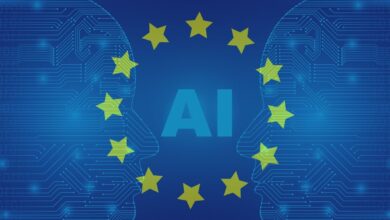
“I think that Zoom has made my client hate me” said a friend to me last summer, not long after his company had made the switch to full remote working.
“What do you mean?”, I asked.
“Well, ever since we’ve moved over to remote working, he doesn’t reply to my messages or my requests for a call. I thought these tools were meant to help”
“Right, what was your relationship like beforehand?”
“I don’t know, I didn’t really talk to him much but it was always fine when I would go and see him”
And there lay the problem; for as much as my friend had adapted to a virtual world – he had learned to work from home, to educate his kids from home, to have a social life from home and so much more – he hadn’t learned to maintain and enhance relationships from home, the stuff at the very core of ‘being a person’.
Sure, AI was helping him with life in so many ways; it reminded him of meetings and helped find information for his job easily. It kept him informed on the latest news, recommended programmes he might like to watch and delivered personalised advertising for his home shopping. It prompted him to do more exercise and cut back on certain foods. He had even set up some AI to inform him when he had gone over 4 weeks from talking to certain clients but what it didn’t do was help him have those conversations.
It certainly didn’t tell him how to read the room when interacting with the client and how to flex his style. It didn’t tell him what questions to ask the other person or what stories to tell to land ideas better. It didn’t tell him when to give and when to take in a negotiation or what emotional intelligence to display when having a difficult conversation. It didn’t point out his habit of talking over others or how he began to listen less the more he was challenged.
If anything, because the constant improvement in AI has made so much of our day-to-day life easier, the brain is more and more used to operating in ‘easy mode’ (also known as system 1 thinking) that when faced with a challenging situation (the need to move to system 2 thinking) it struggles. A good example of this is how, for many of us, when we were at school we had to memorise the names of country capitals. Nowadays we just use Google for that and, as a result, I certainly couldn’t nowadays tell you what the capital of Mauritius looks like without some sort of clue.
In a similar way, as AI helps us with so many aspects of our work and social lives, we’re in danger of neglecting other ‘people’ parts that it can’t help with. When that happens, just like the knowledge of capital cities, the ‘being a person’ muscle, without use, begins to grow weaker and weaker.
I’ve seen this phenomenon happen more and more with friends, colleagues and clients over time: Phonecalls are replaced by a flurry of emails, texts and automated responses where context and emotion are lost; social media posts that are misinterpreted and lead to negative emotions; replacement online shopping items that cause disappointment and unhappiness; algorithms that exclude certain parts of society without intention; the list goes on and on.
It is a worry that as technology advances we see a decline in ‘people skills’; arguably this is all the more challenging at a time where we’ve been forced to be apart from others and societies are on tenterhooks because of the dual ravages on health and economies by the pandemic.
If anything, as the wave of even more AI, comes rushing towards us, now is the time to greatly focus on improving these skills….unless of course they ever do crack AI that can be a better person than either you or I.





